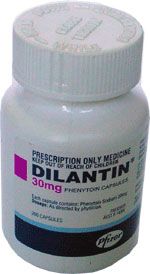Top Class Actions’s website and social media posts use affiliate links. If you make a purchase using such links, we may receive a commission, but it will not result in any additional charges to you. Please review our Affiliate Link Disclosure for more information.

Should this research prove fruitful, researchers may be able to develop a method of predicting who is most at risk of developing Dilantin SJS and avoid a life-threatening, painful, and disfiguring skin condition.
The published study comes from a group of Taiwan-based researchers who agree that one specific gene variant could be used to determine if a Dilantin consumer will develop SJS allergic skin reaction as a side effect of taking the antiepileptic medication.
According to the Dilantin SJS study: “This study identified CYP2C variants, including CYP2C9*3, known to reduce drug clearance, as important genetic factors associated with phenytoin-related severe cutaneous reactions. These findings may have potential to improve the safety profile of phenytoin in clinical practice and offer the possibility of prospective testing for preventing phenytoin-related severe cutaneous reactions. More research is required to replicate the genetic association in different populations and to determine the test characteristics and clinical utility.”
This is great news for Dilantin users, as there have been a number of Dilantin SJS cases reported over the past few years.
Back in 2008, the U.S. Food and Drug Administration (FDA) warned consumers of the risk of contracting SJS while taking Dilantin since the drug’s packaging allegedly did not do an adequate job of warning consumers of this possibility.
As a result, many Dilantin SJS lawsuits and Dilantin SJS class action lawsuits have been filed against the drug’s manufacturers by consumers who claim the pharmaceutical company failed to properly inform them of the risk of a severe and potentially life-threatening skin reaction.
What is Stevens Johnson Syndrome?
Stevens Johnson Syndrome (SJS) is a painful and potentially deadly allergic skin reaction that can occur as a side effect to a number of drug groups.
When a patient develops SJS, a rash or several rashes will form on the patient’s skin and quickly progress to a painful, burn-like state. Eventually, as the skin reaction progresses, the top layer of skin cells will die and fall off, leaving a more sensitive dermis layer and the mucous membrane exposed to infection and eventually blistering. In some cases, the pain and trauma experienced by an SJS victim may be fatal.
Medications with SJS Side Effects
While a person could potentially contract an SJS allergic reaction from any medication, certain drugs have a higher prevalence of SJS victims than others. In addition to Dilantin, these drugs include:
- Antibiotics
- Anticonvulsants
- Sulfa based drugs
- Bactrim
- Septra
- Acetaminophen
- Amoxicillin
- Azithromycin (Zithromax)
- Barbiturates
- Ibuprofen
- Penicillin
- Naproxen
In general, SJS lawsuits are filed individually by each plaintiff and are not class actions.
Do YOU have a legal claim? Fill out the form on this page now for a free, immediate, and confidential case evaluation. The attorneys who work with Top Class Actions will contact you if you qualify to let you know if an individual lawsuit or class action lawsuit is best for you. Hurry — statutes of limitations may apply.
ATTORNEY ADVERTISING
Top Class Actions is a Proud Member of the American Bar Association
LEGAL INFORMATION IS NOT LEGAL ADVICE
Top Class Actions Legal Statement
©2008 – 2024 Top Class Actions® LLC
Various Trademarks held by their respective owners
This website is not intended for viewing or usage by European Union citizens.
Get Help – It’s Free
Help for Victims of Stevens Johnson Syndrome
If you or a loved one were diagnosed with Stevens Johnson Syndrome (SJS) or toxic epidermal necrolysis (TEN) after taking a prescribed or over-the-counter medication, you may be eligible to take legal action against the drug’s manufacturer. Filing an SJS lawsuit or class action lawsuit may help you obtain compensation for medical bills, pain and suffering, and other damages. Obtain a free and confidential review of your case by filling out the form below.
An attorney will contact you if you qualify to discuss the details of your potential case at no charge to you.
Oops! We could not locate your form.












